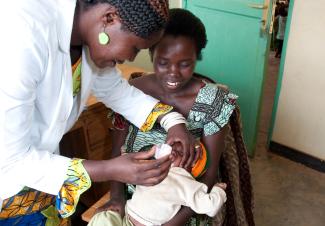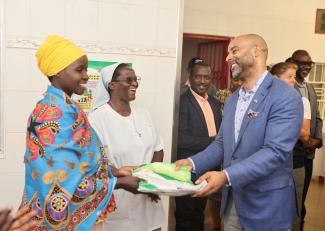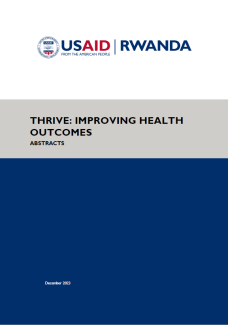Rwanda achieved many of its Millennium Development Goals, out-performing wealthier and better-resourced counterparts on the African continent. These successes are attributed to strong governance, national health system leadership, and effective coordination of external funding.
USAID works in partnership with the local government to improve sustainability of the health system by strengthening financing and governance, using data to make good decisions, ensuring constant supply of drugs and commodities, and swiftly acting to detect and respond to health security threats.
The U.S. President's Malaria Initiative, through USAID, provides mosquito nets, sprays of houses with insecticide, and improves early detection and treatment of malaria in Rwanda. These interventions have contributed to the decline of over 70% of malaria cases in Nyagatare, Kirehe and Ngoma. In addition to this, USAID is actively monitoring the efficacy of malaria treatment.
Investments in primary and community health systems not only helped to ensure the continued delivery of critical malaria services but played an important role in the response to COVID-19. Community health workers, using the skills they developed to track down and treat malaria, were able to find and help people with COVID-19, and surveillance systems set up to track malaria were also able to detect fevers caused by COVID-19, enabling a more effective response.
For more details about the whole program, please see our Thrive Overview. You can also download a booklet THRIVE with complete information about our entire portfolio in health.
For detailed information about each activity, you may use the list of Fact Sheets below.
Fact Sheets

Bill McCarthy

Martin Tindiwensi

